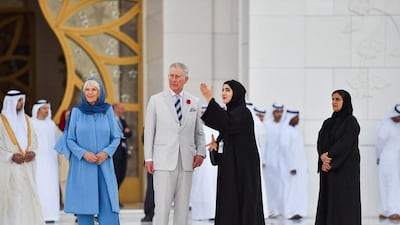For many residents of some of the world's greatest cities, the magnificent, world-renowned landmarks to be found there are sights that are commonplace, scarcely worth a glance as they pass by. The Eiffel Tower for residents of Paris? The Colosseum for those of Rome? The Statue of Liberty for denizens of New York? Simply backdrops to the hustle and bustle of everyday life. When I'm in London, I stroll past Buckingham Palace with little more than a glance as I weave my way through the crowds of visitors, since a wander around the lake in St James's Park nearby, with the chance of looking at a few birds, is, to me, much more interesting.
It's not because familiarity breeds contempt. It's just that the significance of these buildings and structures becomes part of the essential ethos and character of the cities. Once you've seen them for the first time, or the first 20 times, they become in a way less noticeable. Parisians, Romans and New Yorkers feel much the same as those accustomed to London, I suspect.
The same may well apply to residents of, or frequent visitors to, the UAE. After you've passed by the Sheikh Zayed Grand Mosque in Abu Dhabi or have stood and stared up at Dubai's Burj Khalifa a few times, their ability to impress, to overawe, somehow lessens. That's true even if at the back of one's mind the recognition remains that they're among the most famous buildings in the world.
Occasional or first time visitors, though, look upon these symbols of the UAE in a different light.
After landing in Abu Dhabi on Sunday evening, the first port of call for Britain's Prince Charles and his wife, the Duchess of Cornwall, was Sheikh Zayed Grand Mosque.
They have, I believe, visited it before, but Prince Charles, known for his deep interest in architecture, obviously made it clear that he wanted time to be found in his packed programme for another visit.
I'm not privy to any private comments that he or his wife may have made on the mosque's glorious architecture, and, if I was, I wouldn't repeat them. I am, however, able to relay the impressions of another recent visitor from my home island of Jersey who passed through the UAE late last month.
He will, I hope, forgive me if I call him a hard-nosed ex-banker, a widely travelled man with enormous experience of visiting many of the world's capitals. He's visited the UAE before, but this time he finally found time to visit the Sheikh Zayed Grand Mosque with a colleague.
He arrived late for dinner, almost gushing with superlatives about the impression that the mosque had made on him. Stunning, amazing, inspiring, magnificent – you select the description and he probably used it.
My friends – let's call them John and Emma – clearly found their visit a deeply moving experience, one which will, I am confident, remain in their memories for a very long time.
Given their enthusiasm, I am confident, too, that they will communicate their experience to others, in Jersey and beyond. If that prompts a few more visitors to come, so much the better.
It's easy to say that one shouldn't become blasé about the architectural wonders in our midst, but it's also quite natural that those of us who have the good fortune to see the Sheikh Zayed Grand Mosque or Burj Khalifa regularly somehow lose the “wow!” feeling as we pass by. Perhaps, on occasion, we should take the time for a fresh look, to renew our sense of history, our sense of wonder.
And the next time I wander down The Mall in London, on my way to the geese, swans and ducks in St James's Park, I'll try to stand and stare at Buckingham Palace and remember how amazed and impressed I was when I saw it as a child.
Peter Hellyer is a consultant specialising in the UAE’s history and culture


